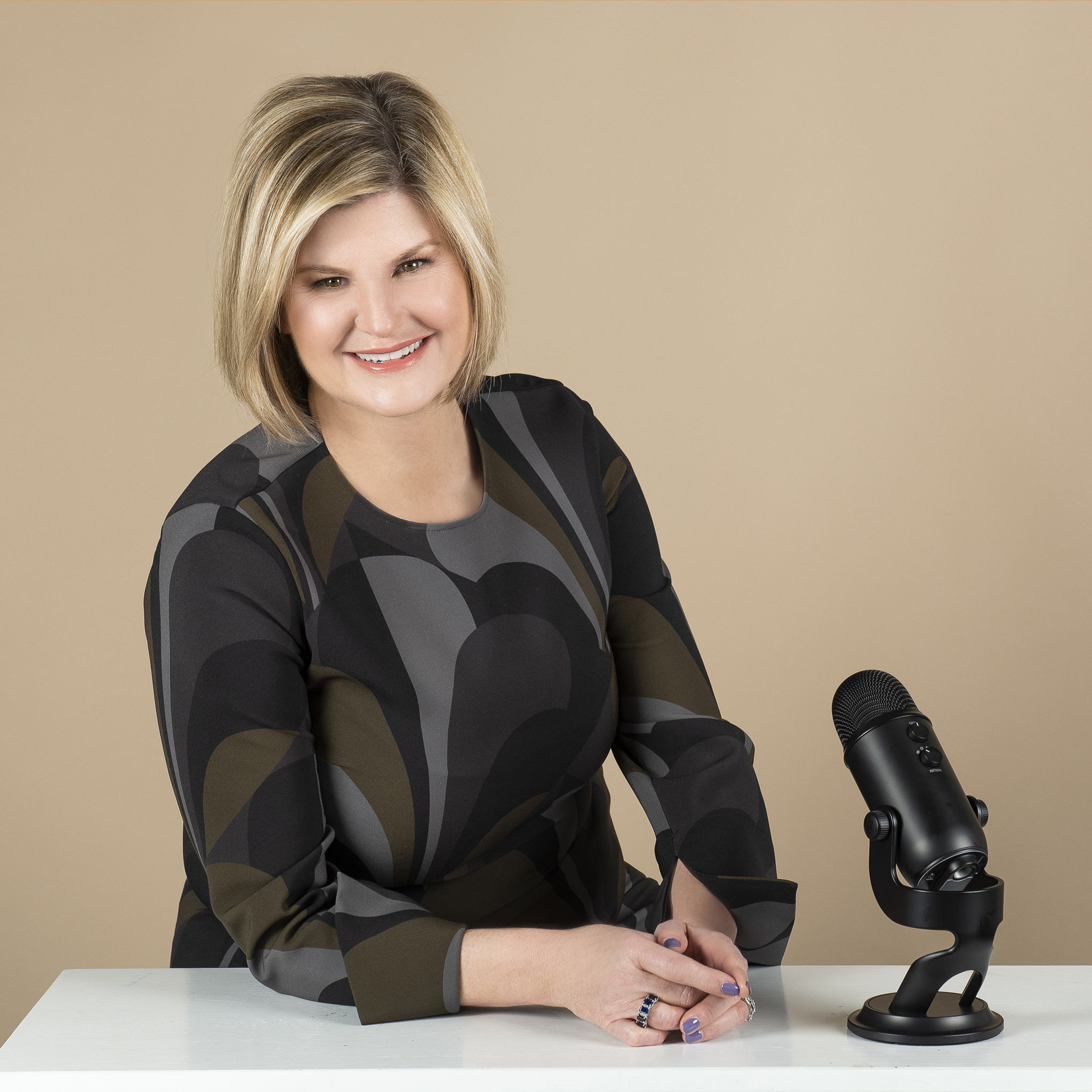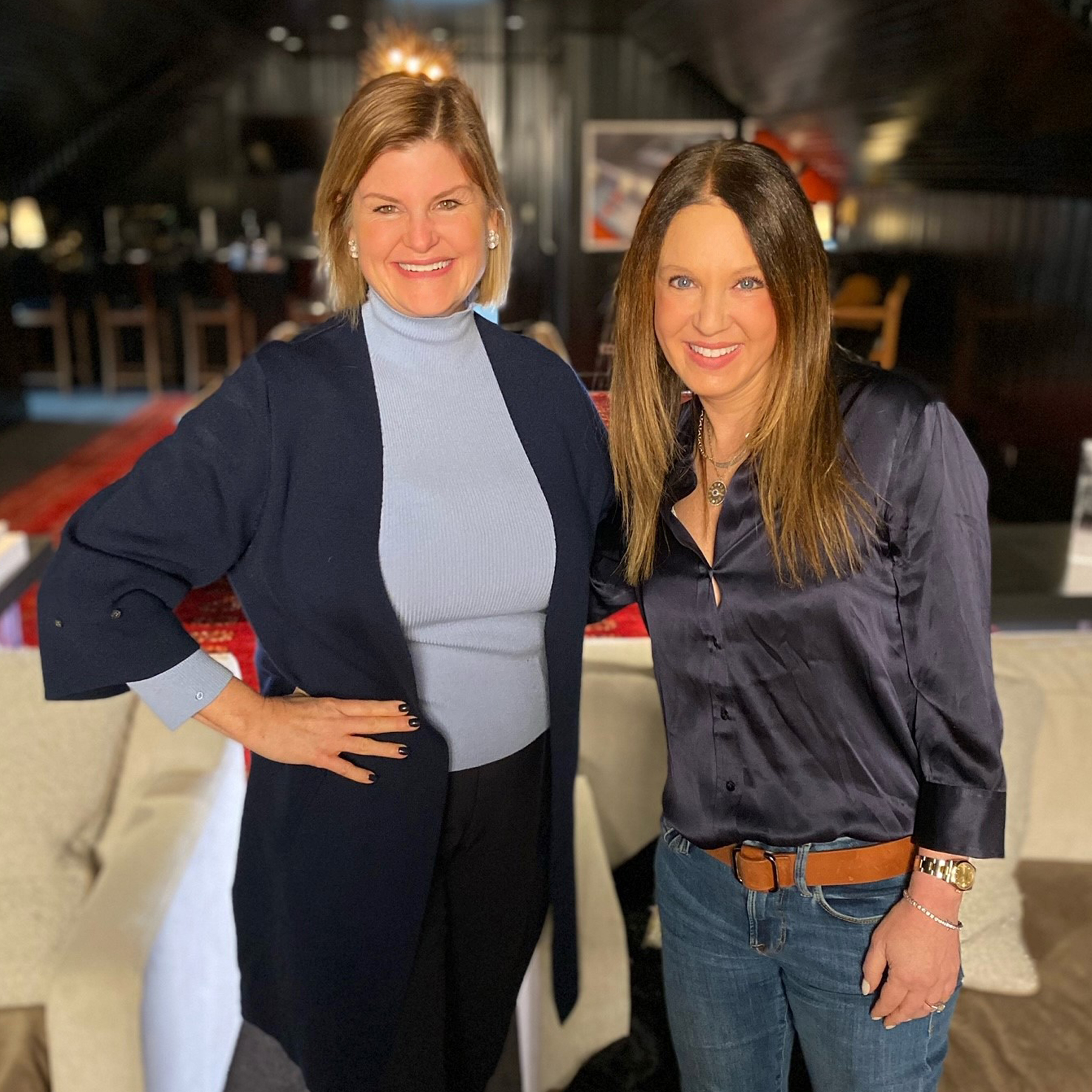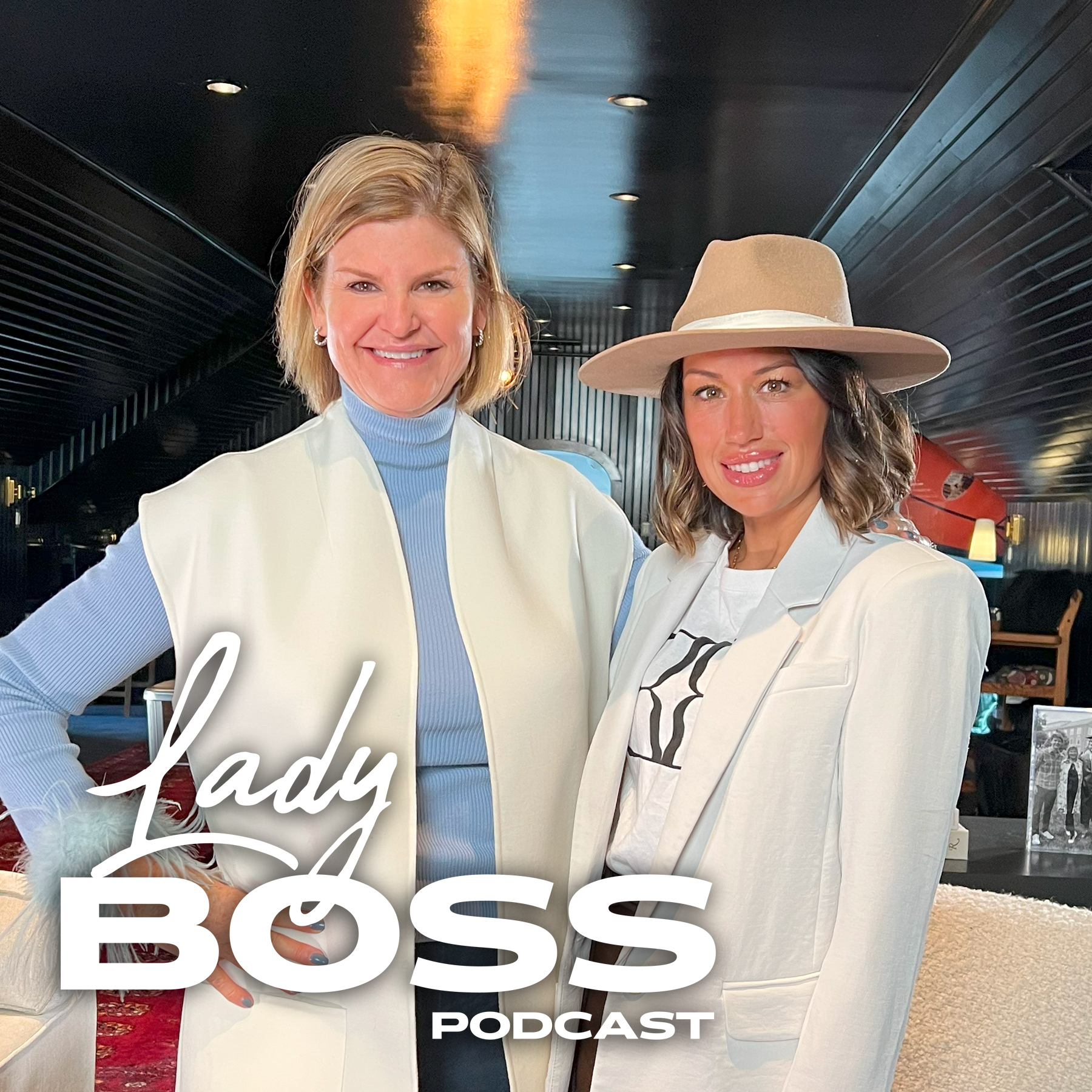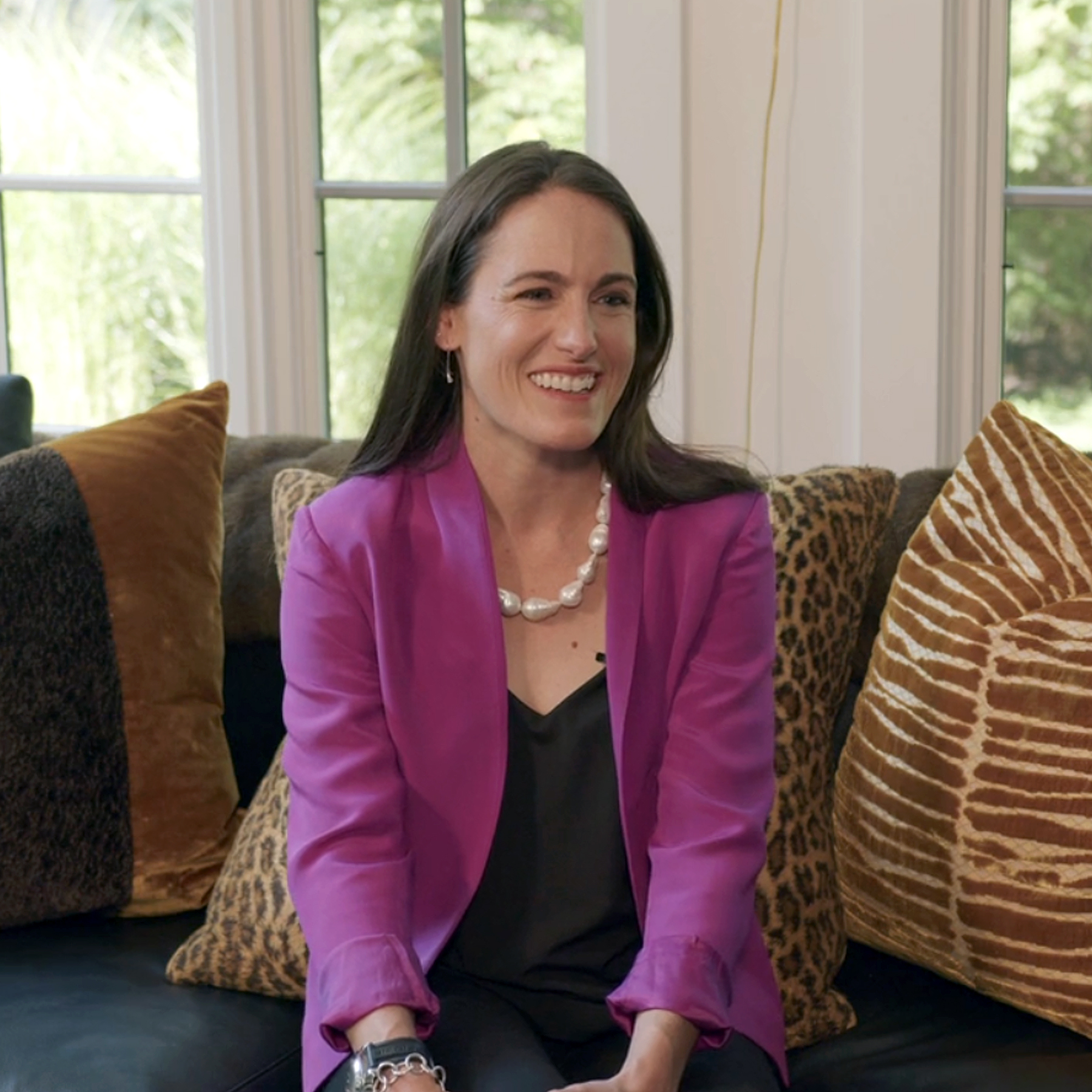Episode Transcript
Speaker 0 00:00:00 Today we're gonna hear a story about reinvention. Elena Victoria took a very old school business model sewing and made it relevant for today's young children. Let's hear today from Elena on how to take something old and make it new and relevant in today's market. So good to be with you, Elena. So
Speaker 2 00:00:40 Good to be here. Thanks for having me.
Speaker 0 00:00:41 You're totally welcome. Thanks for making time. Well, we, uh, at the Lady Boss Podcast, we talk about growing businesses, pivots changes, and things that make businesses better. And I think your story is gonna be really fun for the listeners to hear. I wanna jump right into the fact that you had a big pivot during Covid, because I think the last time we had a wedding, um, before CO was before Covid, and you, uh, by definition make high-end couture wedding dresses. So tell me what that April, 2020 was like and what you did to survive and thrive to where you are today. Yeah, so
Speaker 2 00:01:14 Covid was an interesting time, um, of growth actually for my business, which I'm very fortunate to be able to say in both, in both areas, the sewing classes and the gowns. So for the gowns, um, a little bit less of, you know, 20, 20 maybe the year of events. But the year following, people were starting to do stuff. They wanted to look really amazing and feel really good in their skin after a year of, you know, awfulness at home. And, um, they also didn't want the shopping experience. So they had all these things that pushed them towards custom. And as you know, I book out, you know, six to nine months in advance for a gown. So it kept me busy during, you know, the end of C O V I D into 2021. However, the class business that I have, ev fine arts was booming because children were looking for ways to get involved and help with the pandemic. So I did online classes on how to make masks. I did mask kits that sent, got sent to your doorstep. Um, and then I did outdoor garage sewing classes once the summer came around when the weather was nicer, kids got to break away from their houses, put on masks and like come sew in a safe space and make clothes for themselves.
Speaker 0 00:02:25 Okay, we're gonna pack that a little bit. I think that's so many great business experiences and, and ideas on, um, how to change. So let's quickly first talk about the couture business. Um, you have people that are, um, really the upper end of the market. They're like couture. Mm-hmm. <affirmative>, very customized, high end. How do you find those people that, you know, go from, I just will buy a dress on j crew to, I want my own Elena Victoria customized gown.
Speaker 2 00:02:52 So I think it's a perfect combination of, uh, they find me given the fact that nothing in stores is satisfying them. And we all have been there before where we have an event, we know exactly what we wanna wear, but we can't find it. So that's where I come in and create that for them. Um, and then word of mouth. Word of mouth is huge. I have a bunch of clients, as you know, I grew up here and I have a bunch of clients in, in the North Shore and in Michigan where I live for seven years. And so between those two neighborhood or you know, communities, I have a ton of clients that have just shared my business with other people. You know, you have to hire her, she'll make a dress of your dreams, it'll be exactly what you want. Things like that. You,
Speaker 0 00:03:32 You know. So I grew up with a, um, a dad and, and who, who was a part of a third generation, uh, custom men's clothier. And we, uh, were bred and born to wear good clothes. So this is very familiar talk to me, but I think, um, I also saw that it's a hard business to scale, uh, because it is so one at a time. Yes. And, and you're young and you know, I've seen people do collaborations. I've seen, um, other unique ways people have grown their business. But what's the path for you if that's what you want? Mm-hmm. <affirmative> to really grow. Elena Victoria. We'll talk about the couture first and we'll get to the, to the growth oriented part as well. Yes.
Speaker 2 00:04:09 So, um, so I was at a crossroads like I wanna say three years ago where I had to decide, do I continue? 'cause I was selling some tops at a local boutique, actually two local boutiques in different states. Um, silk tanks and dresses, women's ready to wear. But it was just me. I had to make all of the same item. It was end fabrics, it was a ton of labor. And so I was looking at the market over there thinking I'll just be another designer in this big sea of designers trying to do the same thing. Or I could continue on the custom route, which I had done for 10 years at that point. You know, designing custom, unique pieces. One off, you can't make it, you know, no one else can order it or have it, um, to this great clientele that I already had. So the other option didn't really seem appealing to me. And it was kind of, you know, a perfect decision of, okay, well that is gonna take a lot more overhead, it's gonna take a lot more risk. Or I could just continue to build the custom brand and redo my website and make it something big. And so that's where I am today.
Speaker 0 00:05:15 So I think you hit on something that very, very important that a lot of entrepreneurs don't consider. Sometimes you have, uh, a lane in your business, which is, is a growth lane. It's a great path. You've got good customers, but it's, it's not the rocket ride, right? It can grow incrementally and organically, but it doesn't have the same scalability as what I want you to talk to next is what you also created that's very, uh, alongside of that business. But talk about the, the class business that you have, which I see is something that is the rocket ride and, and maybe you're very passionate about as well.
Speaker 2 00:05:46 Yeah. So the sewing business, like, as you can tell from my smile, is like everything to me, it's my, it's my baby. Like, it's a, everything I've worked towards. Um, and the gown business is my passion, my talent. And that's how I love to share that with the world. But the, the, the kids' classes is, I have such a wide reach now between the two states that I'm operating in, um, Chicago and Detroit. And it's, it's, it's creating so much impact and communities and, um, scaling it has been, it's, it's really like something that's fallen in my lap more so than me hunting at hunting down how to scale this great big challenge and how to make it some big thing. It's just kind of been organic. And so I've had teachers, um, young college girls who are studying fashion design come up to me either on Instagram or in person. I love what you're doing. Can I get involved? I'd love to, to work for you. Um, I've had parents saying, do you offer this in my neighborhood? How can we get this in my neighborhood? I, you know, belong to this community center. Can you offer classes there? It's just grown. It's taken on its own roots and it's been incredible.
Speaker 0 00:06:52 So in that part of the business, maybe getting customers hasn't been hard, but I think you've talked a lot about the real linchpin of that business is the, the staff that's needed to instruct the, the classes. So how have you gone about really recruiting the right level of talent to deliver what they, they really signed up for you? So how, yeah. How's that been?
Speaker 2 00:07:14 So, uh, people always used to say, you know, you are your business though. People wanna see you and have you teach the classes. You can't be your the, you can't be the business. You need to separate the business from yourself. You can be that the head, the face of the business, but you can't be the product. Right? So I kind of broke down why my product is so good, why the camps are so good for kids, what they get out of it. Um, what would, what would be really good criteria for a teacher similar to me, but not me. 'cause I can't teach everything mm-hmm. <affirmative>. And so, um, I, I recruited girls from girls and boys from all over different design schools in the, in the areas that I'm already operating in. And the interview process was fun because all these people that I was interviewing were so talented and they were so in, you know, interested in what I was doing design-wise. And they were impressed by the kids offering. So it was like worst case scenario. They didn't get hired for the kids classes 'cause they weren't a good fit. They still keep in contact with me about design. We still might attend a show together or they might offer, they might offer, you know, to come in for a photo shoot or something like that.
Speaker 0 00:08:19 Well, and it, it's a specific person you're looking for because remember bringing forward a couple candidates and, um, and rightfully 'cause you know who you're hiring, but you said no, they're too old now. Sewing by design is, is kind of an old person sport Yes. Up until you reinvigorated it. Yeah. So, you know, tell me what's the profile and why was it so important that they be young and beautiful like you? Well,
Speaker 2 00:08:43 The, the criteria, like the whole appeal to my product and offering is that these young kids who are dreaming of who they, you know, wanna become, are looking up to someone somewhere, right? And so, yes, they look up to their grandmother like I did, my grandmother taught me how to sew and I loved spending time with her. Um, but she didn't check the box of fashion. She didn't check the box of like, what is a, an older person wearing? I wanna see what they're wearing. So as a 10 year old girl, I can wear that. And so the criteria that you have to be, you know, 18 to 24 to teach my classes, um, 'cause I still hire graduates and stuff like that, but it's mostly college aged students is because these young kids are, that's the next generation they're looking at. Like, they want to see what they're wearing. They wanna hear what they do with their free time and, you know, feel their energy. It's not your Joanne Fabric's, you know, employee teaching a class that's slow paced, that's not fashion oriented. That's the biggest differentiator of my, of my classes.
Speaker 0 00:09:47 Yeah. No, it's great. I, um, and I think it's so impactful. I, I believe, um, COVID brought back some more basic values. Mm-hmm. <affirmative>, did you see, um, you know, yes. You know, you're out and about and you've got customer referrals, but do you believe it's really the values that came back, we were at home, people needed things to do that made that, you know, kind of put the igniter gas on what you're doing?
Speaker 2 00:10:09 Yeah, I would say it was, it was ripping before covid. Like, it was, it was there ripping now. Yeah. Especially for that age group of, 'cause my target market's like kids ages eight through 12. Okay. So I do get some six, seven year olds that hang in there, but, you know, they're a little young. Eight through 12 is really the, the kids that are really interested, independent and can do the skill. So it's always been there, but Covid just created a little more time for people. They weren't doing their organized sports, the plays, like whatever else they were involved in prior. Mm-hmm. <affirmative> had kind of been on hold. Sewing is an independent activity you do at home with yourself, with a friend, with your, with your mom or your grandma. So that created space for them to do it. Hmm. And so I think a lot of people either started doing it more and wanted to get better and come to classes after, or they picked it up as a new skill.
Speaker 0 00:10:59 So, you know, you're a young person. What does the next, uh, big milestone look for you in your business?
Speaker 2 00:11:07 So really right now I'm focusing on recruitment and expanding into different communities. Okay. And, and penetrating the communities I'm in right now, um, north Shore, Chicago, the western suburbs, and then suburbs in Detroit that I talked about. But it's finding the, the right people. So, you know, I I I, I want to release control to other positions in the business. Like, um, running the website or handling the Instagram or parent emails even for about, you know, or organizing camp details about who's absent today and all that stuff. That stuff can be delegated, but I really am, I'm gonna be the one recruiting for the talent because I truly think that's how a business survives and thrives is with people. And the, the product itself is good and I'm confident in that, but it's the people that are going to back my product that have to be amazing. It can't just be anyone and I can't, you know, expect someone else to go out and find those people for me. So that's where I'm channeling all of my energy towards this next year. You raise a great, a great question of how to be a mom and a business owner at the same time. So I really, I would love to know how you do it. I mean, you've done it so successfully. You have beautiful children and a amazing business. So really I should be asking you that advice. Right,
Speaker 0 00:12:21 Right. Well, um, I think, um, a lot of the things you touched on are really critical, you know, delegating, having the right people around and really know what your priorities are. Uh, so I really view the CEO's role as, you know, kind of chief cheerleader, chief recruitment officer, and chief deal maker. Mm-hmm. <affirmative>, I mean, and that, that's what I do. And it sounds like, you know, you're really just, uh, way ahead of the curve by focusing on things that are the mission critical to the business. Mm-hmm. <affirmative>, you know, if you, I've always heard, my mentors always told me that if things aren't breaking in your business, you're not growing fast enough. Just not the wrong things. Yeah. So what's breaking in your business?
Speaker 2 00:13:00 Well, uh, hope. I mean, as of right now, we don't have any major breaks, but I went into the summer thinking, okay, I kind of holding my breath. Let's see how it goes. Because this is the first summer with 12 people on my, uh, as staff, 12 staff members and me managing and me not being on the front lines of teaching and stuff. So I expected, you know, some feedback, something somewhere. Um, and I've, I planned so well for the summer and my training was so intensive that I haven't experienced it yet. However, you know, it's only July. I'm sure it will come. Um, and gown feedback is always there with my clientele. It's, you know, it's never perfect till we're done, done, done. Very end, you know? Yeah. But it's, it's always something that I have to be receptive to. Yeah. It's, why are you not happy? How can I make the product better with both parts of the business? So how'd
Speaker 0 00:13:53 You get to be such a natural entrepreneur? Do, did your parents, um, are they entrepreneurial people or who really led you down this path?
Speaker 2 00:14:00 I have no idea. My parents are not, um, they've encouraged me in it, but they, they are not entrepreneurs themselves. I, I feel like the moment I knew that I was more of an entrepreneur than even a designer was when I worked for Abercrombie and Fitch, as was my first job outside of college as a designer. And it was so corporate and so not what I thought it would be. And I also wasn't making a great living. Um, so I went to do the brands. And so I, I went to do my own brand, started my own brand and tried to pursue that as a young designer. This is what I'm gonna do. I'm gonna make my own label and find my own way that also wasn't making any money. So that's where the sewing class thing comes in. And that's, I'm so passionate and so fortunate to have the sewing camp business because that's my bread and butter, that's my living. And so that's what, that's where I pour most of my time into. The design aspect of my business is very important to me. And it's grown immensely, but it's also something that is, um, really like talent and passion driven versus entrepreneur, you know. So
Speaker 0 00:15:05 What are the sales breakdown, if you had to split up the two parts? It's about
Speaker 2 00:15:08 70 30 right now. Okay. So 70% is my sewing camp. Uh, earnings and classes throughout the school year. Private lessons. Having the 12 teachers on board has been amazing. 'cause I can be in 12 places at once. And, um, the gown business is, is basically the, the stuff, you know, not in between, but when months are slower for classes, that's when, when business is doing really well for gowns, I'm taking most orders on end of fall, um, winter, beginning of winter for that next summer round of brides and weddings and events. So that's when, you know, maybe the holiday classes are running, but in general, kids are in school, it's not super busy. Yep. So I'm able to split my time nicely.
Speaker 0 00:15:52 Well, if you're this young and you've got a business that's pretty self-sustaining and you've got other people running it and it's 70% of your business pursue that <laugh> you, that, that, that's the magic secret sauce. Um, okay. Thank you. Flip forward five years. What do you want your company to look like? Is it famous or money? Because you said the word famous. So what's important to you?
Speaker 2 00:16:12 You know, I, I just want, I wanna have a wider reach with the classes. I'd love to see myself in multiple states and running in different suburbs. I have students that have left the communities that I've met them in, and they've moved to Denver and Austin and all these cities where they're asking, Hey, no, nothing like what you had in Michigan or in Illinois is offered here. Can you, can you bring it to us? And I can, it's very easy to scale now that I have this, you know, model in place. Yeah. And so I am excited to, I, I can see myself being, it, it could be nationwide, and I think if I put my, you know, heart in it, it will be. And so the gown business will just follow. The more people I meet, the more classes that kids take, the parents or the kids even grow up. I made someone's graduation gown for Nutri this year. That was my first student, you know, in my parents' basement when we did the first sewing camp in 2010. So it's so good. Yeah. It all comes together. And as you know, in business and as an amazing person that you are like, connections and relationships are everything. Yeah. So that's, that's where I see myself at. Well,
Speaker 0 00:17:17 I think you should reach that far. I think that business models, you know, you don't have to be at the front of a curve and come up with, you know, how do you ride to the moon to make a great business? And you have taken something that is, you know, pretty, um, <laugh> old school for lack of a better world. My business is old school too. Yeah. And made it fantastic. And there's no reason that you can't be a national player. And, and I think that you should set your sights on that because you're so young. To have 12 years of entrepreneurial journey under your belt already. Thank you. Is fantastic. Um, I'd say shoot bigger and, uh, you know, maybe you'll be famous and rich. Yeah. <laugh>. But we'll be excited about the rocket ride you're on and, uh, thank you. And just hang in there for my grandkids. All right guys. Favorite part of the podcast is where we hit the interviewees with some rapid fire questions. And we're gonna learn some things that'll help you elevate your business. First one, your favorite retention tool for employees.
Speaker 2 00:18:18 I would say the impact that the, the customers give them in their lives.
Speaker 0 00:18:24 Okay. Impact. Mm-hmm. <affirmative>. Next one. What's your favorite business book?
Speaker 2 00:18:29 You are a badass.
Speaker 0 00:18:30 Of course it is. Love it. Who, what'd your mentor tell you that sticks in your brain as your most useful advice?
Speaker 2 00:18:39 He always says be logical. And it seems offensive and obvious, but sometimes that's exactly what I need to hear.
Speaker 0 00:18:48 Awesome. Elena, what's your superpower?
Speaker 2 00:18:53 I would say, um, my energy. People have told me my energy is contagious.
Speaker 0 00:18:59 That's awesome. Okay. And if you have to give one piece of advice to the listeners about how to maximize their business and grow it more profitably, what would you say?
Speaker 2 00:19:10 I would say take the next step. That totally scares you.
Speaker 0 00:19:15 Nailed it. <laugh>. Thank you. Thank you. Wow. Thanks for having, having me trip. I think everybody's gonna enjoy listening to this and I hope so. Really open up their mind and, uh, push forward. That's what you taught us today. That's what I heard. Anyway. Thank you Courtney. Thanks for being here. Elena. Love this of.



